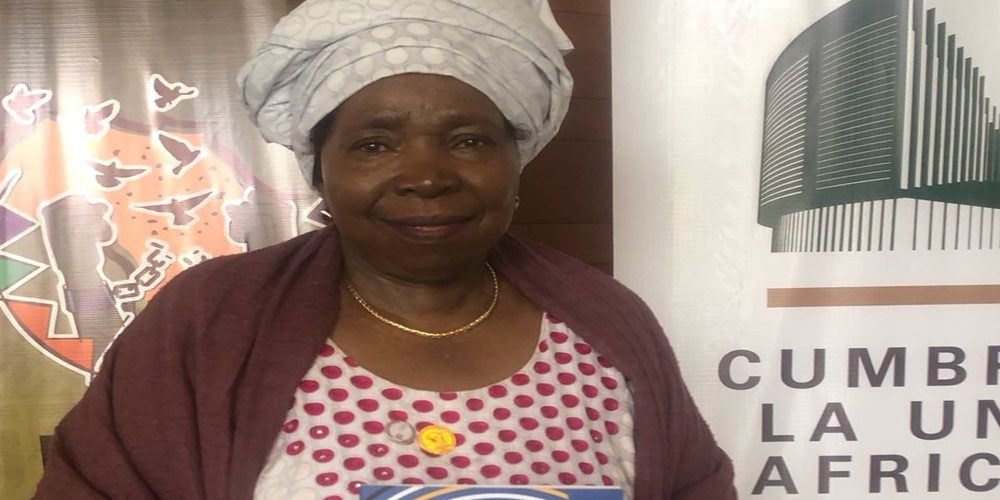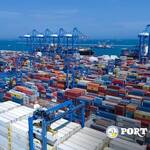At the 38th African Union (AU) Summit in Addis Ababa, a groundbreaking outcome document—known as the Accra Compact—was unveiled.
Developed at the 2025 edition of the Africa Prosperity Dialogues (APD) held in Accra from January 30 to February 1, the 40-page document lays out a transformative agenda aimed at accelerating economic integration, driving strategic infrastructure development, and unlocking Africa’s full economic potential.
The compact has been enthusiastically received by heads of state and their delegations, signaling a renewed commitment to realizing the promise of a single African market under the AfCFTA framework.

Mobilizing a new vision for Africa
At a press conference following the distribution of over 300 copies of the Accra Compact at the AU summit, former AU Chairperson and current Chair of the APN Advisory Council, Dr. Nkosazana Dlamini-Zuma, described the APD as a “call to action” for leaders from both the public and private sectors.
“The APD is designed to bring together African political leaders, influential businessmen and women, and global citizens to discuss and agree on practical steps to achieve Africa’s prosperity,” she declared.
Dr. Dlamini-Zuma stressed that the compact is built on five transformative pillars that will steer the continent toward sustainable development.
Pillar 1: Transport and logistics integration
The Accra Compact emphasizes the need to overhaul Africa’s transport and logistics systems.
A key focus is the implementation of the Single African Air Transport Market (SAATM), which aims to eliminate the 30-40% cost premium currently impacting intra-African trade. Comprehensive air service liberalization is a priority, as is the execution of Africa’s Integrated Maritime Strategy 2050.
These measures are designed to remove bottlenecks, reduce costs, and ensure that goods and people move freely across the continent, a critical factor in achieving the AfCFTA’s vision of a single market.
Pillar 2: Energy security and power integration
Energy security remains a pressing issue for over 30 African nations, and the compact calls for the development of interconnected power grids and harmonized regional energy policies.
A special emphasis is placed on strategic projects such as the Grand Inga Dam for hydropower, as well as the exploration of solar energy potential in the vast Sahara and Kalahari Deserts.
By uniting regional efforts and pooling resources for energy projects, Africa can address chronic power shortages, enhance industrial productivity, and spur economic growth.
Pillar 3: Digital transformation
Digital transformation is a cornerstone of the compact’s strategy. Building on the AU Protocol on Digital Trade and key reports on mobile money interoperability, the document establishes a five-year roadmap for achieving Pan-African digital integration.
The plan calls on all member states to join the Pan-African Payment and Settlement System (PAPSS) by 2027, with an enhanced integration using the Ghana interoperability model to enable seamless transactions across mobile money, banks, and other payment platforms.
The ultimate goal is to achieve full cross-border mobile money interoperability by 2030, thereby facilitating digital trade and expanding financial inclusion across the continent.
Pillar 4: Health care and social infrastructure
Recognizing that a healthy population is the backbone of sustainable development, the compact dedicates a significant section to strengthening healthcare systems and social infrastructure.
This includes increasing domestic pharmaceutical production capacity and deploying digital health solutions, such as integrated mobile payment and insurance platforms.
Furthermore, the compact urges governments to prioritize STEAM education, ensuring that young Africans are equipped with the entrepreneurial and employable skills necessary to thrive in a rapidly evolving economic landscape.
Pillar 5: Strategic infrastructure financing
Perhaps the most ambitious pillar of the Accra Compact is the establishment of an Integrated Africa Infrastructure Growth Fund, with a target of mobilizing over $2 trillion within its first decade. This fund will be supported by a retail drive that encourages 100 million Pan-Africanists—including people of African descent and friends of Africa—to invest as little as $1 a day, or approximately $30 a month.
“If this commitment is achieved, it could generate an additional $36.5 billion annually,” explained Gabby Asare Otchere-Darko, Executive Chairman of APN.
These funds will be crucial for financing large-scale projects such as railways and roads that will comprehensively connect the continent from north to south and east to west.
A multi-day summit driving change
The APD 2025 summit in Accra brought together over 2,000 leaders from 47 African countries and the global diaspora.
The three-day event featured a series of high-level sessions, including the opening of the Projet Afrique Exhibition, breakfast meetings, and a welcome reception at the Kempinski Hotel Gold Coast City.
Day two focused on critical topics such as sustainable energy solutions, digital infrastructure, manufacturing capacity, STEM education, healthcare, and urban development, while the final day culminated in a High-Level Heads of State and Business Leaders’ Dialogue and a Presidential Roundtable on private sector participation in Africa’s single market.
A significant signing ceremony marked the collaboration between the AfCFTA Secretariat and BADEA, reinforcing the commitment to transformative change.
Driving the “Africa We Want” vision
The Africa Prosperity Network (APN), a private non-profit organization established to advance the vision of “Africa We Want” as outlined in the AU Agenda 2063, remains at the forefront of this movement.
The APD series provides a strategic platform where African leaders and decision-makers convene annually to accelerate the implementation of AfCFTA initiatives and shape the Africa Agenda for Action.
As the continent continues to build on its technological and economic advancements, the Accra Compact stands as a testament to Africa’s potential for self-reliance and sustainable growth.
Looking Forward
As the APD 2025 Accra Compact is now in the hands of African heads of state, its successful implementation could transform the continent’s economic landscape.
With targeted reforms in transport, energy, digital infrastructure, healthcare, and strategic financing, Africa is poised to not only realize the dream of a single market but also to significantly improve the quality of life for its citizens.
The Accra Compact, therefore, is more than just a document; it is a roadmap to an integrated, prosperous, and self-sufficient Africa.
- Monday, May 12, 2025 Newspaper Headlines - 12 May 2025
- With honour culture, Mahama wouldn’t need appointee Code - 12 May 2025
- Dollar role under pressure from portfolio rebalancing - 11 May 2025




